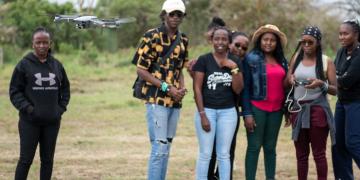Three-levels of a Co-living community
By implementing a three-level urban renewal strategy of shared neighborhood, shared courtyard, and shared building, the scattered and limited spaces in the Fayuan Temple area are organized.A top-down communal living system is established to solve the difficulties of residents' relocation, outdated infrastructure, and the protection and utilization of historical buildings.
Shared Neighborhood
We analyzed the activity paths of different groups of people in the Fayuansi neighborhoods. The clear functional division of different areas leads to lack of intersection among various groups, which invisibly forms social barriers and is not conducive to long-term development of the city.
In the shared neighborhood, the entire block is taken as a shared space and considered as a whole, with a management center as the core to lead the co-living system. By dispersing the public functions throughout the block, the daily life of the local residents in the block has been transformed into a distinctive experiential tourism product. Overlapping activities are happening in composite physical spaces, which generates continuous energy for the neighborhood.
Shared Courtyard
The current living condition inside the courtyards is barely acceptable. Illegal construction such as kitchens and bathrooms has become a common phenomenon and the importance of public spaces are severely downgraded. There is hardly any public spaces left other than basic transportation space.
Most of the young generations have moved out. Among the remaining residents , elderly and young children are the majority as well as some short-term tenants. The continuous reduction of vitality among the neiborhood has become an attention-grabbing problem.
While improving the overall courtyard environment, priority is given to ensuring the basic living needs of residents. This project adopts a four-step (evaluation, repair, demolition, and addition) measure of courtyard renovation. As the number of vacated households increases, existing illegal buildings will be demolished and public service facilities such as shared kitchens and shared laundry rooms will be added. These facilities will be integrated with internal courtyards and public green spaces to form a pubic core for the neighborhood.
Shared House
The vacant houses in the Fayuan Temple district are all made up with "rooms" with various ownerships. Using "room" as a basic unit for renovation is an effective way to reduce the risk of conflicts regarding property ownerships, and also flexible units can better adapt to the living needs of different types of people. By analyzing the dimensions of the courtyards, a 10-12 square-meter room unit was determined as a standard renewal module. The combination of dual and multiple units enables the possibilities for various functions such as long-term apartment, youth hostel, and Café etc.
